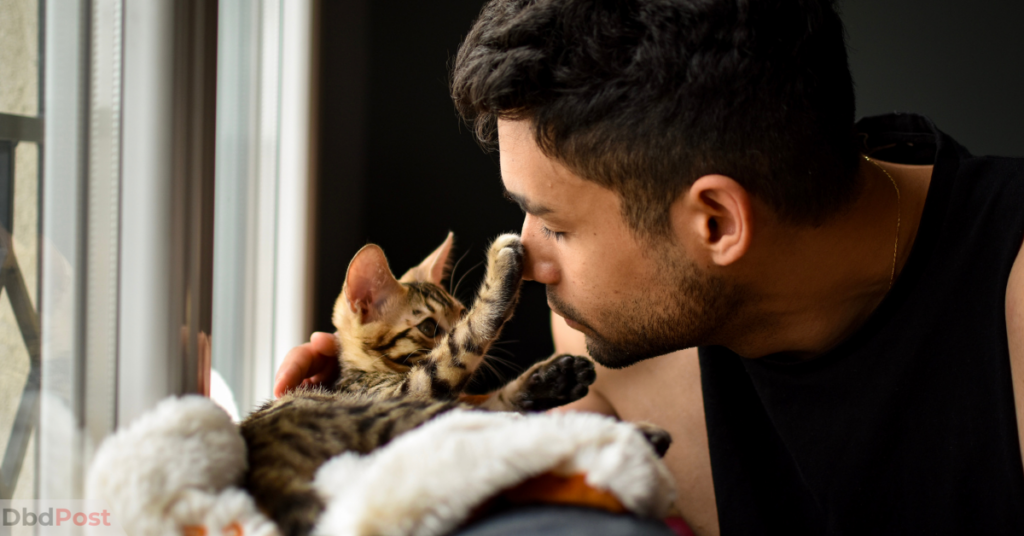Massachusetts has taken a bold and compassionate step in animal welfare. The state recently banned cat declawing. Governor Maura Healey signed the law into effect, making it official.
Declawing involves amputating a cat’s toes at the first joint. This invasive procedure removes claws to prevent scratching. However, experts call the practice inhumane and unnecessary.
The procedure causes acute pain. It can also lead to long-term problems like arthritis or lameness. Behavioral issues like aggression and avoiding litter boxes are followed.
The new Massachusetts law bans declawing unless medically necessary. Exceptions include treating injuries, infections, or diseases affecting the cat’s claws. Violating veterinarians risk fines, license suspension, or revocation.
Animal welfare groups worked hard to pass this law. Organizations like the MSPCA and the Humane Society pushed for change and educated lawmakers and the public about the cruelty of declawing.
Veterinarians also supported the movement. Many prioritized feline well-being and advocated for humane alternatives. They suggested nail trimming, scratching posts, and behavioral training instead.
Massachusetts joins New York in banning declawing statewide. Cities like Los Angeles, Denver, and San Francisco have local bans. Globally, countries like the UK and Germany prohibit the practice.
This ban reflects changing views on pets. Society increasingly sees animals as sentient beings, not property. The law encourages owners to respect cats’ natural behaviors.
Scratching is instinctive for cats. It helps them mark territory, stretch muscles, and maintain claw health. The law ensures owners accommodate this behavior instead of opting for surgery.
Critics of the ban have concerns. Some fear owners will surrender more cats to shelters due to scratching issues, while others argue that owners should make their own pet care decisions.
Supporters address these concerns with solutions. They highlight humane alternatives and stress responsible pet ownership. Education plays a key role in shifting perspectives.
The Massachusetts ban fosters a more humane society. It challenges outdated practices and promotes responsible ownership. The law aligns with growing awareness of animal welfare.
This legislation may inspire other states. As awareness of animal rights increases nationwide, more states could adopt similar bans.
Massachusetts’ decision sets a new standard. The ban encourages compassion and better care for pets. Cats deserve dignity and respect, not unnecessary pain.
The law’s focus on humane solutions benefits everyone. It promotes understanding of cats’ needs and behaviors, and responsible pet care becomes the norm, not the exception.
As the ban takes effect, education remains crucial. Pet owners need tools to manage scratching effectively, and veterinarians and advocates must continue spreading awareness.
Massachusetts’ bold move represents progress in animal welfare. It marks a shift toward treating pets with kindness, and cats across the state will now live healthier, happier lives.
Scratching is an instinctive behavior for cats. It allows them to express emotions, from stress to joy, and is also essential for their mental well-being.
Pet owners can use alternatives to declawing. Scratching posts, available in different designs, dimensions, and materials, encourage cats to scratch in designated areas.
Soft nail caps offer another solution. These small silicone coverings protect furniture without restricting natural behavior. Applying them requires minimal effort and is pain-free.
Regular nail trimming reduces the risk of damage. Many veterinarians provide this service during routine checkups, and pet owners can also learn to trim nails safely at home.
Educating owners about cat behavior is key to reducing conflicts. Knowing why cats scratch helps owners address the behavior positively, strengthening the bond between pets and their owners.
Animal shelters and rescue organizations can contribute to this education. Workshops and resources can help new cat owners adapt to their pets’ needs. Communities benefit when pets are better understood and cared for.
The Massachusetts ban is part of a larger movement. Global awareness of the humane treatment of animals is growing, and laws like this one reflect society’s evolving views on ethical pet care.
The ban also highlights the importance of advocacy. Change often begins with individuals speaking out, but collective efforts lead to meaningful progress for animals and their welfare.
By focusing on noninvasive solutions, the law sets an example for others. It demonstrates how simple changes can have a significant impact, and future policies may draw inspiration from Massachusetts’ success.
Massachusetts has taken a stand for animal welfare. The declaw ban shows a commitment to humane practices that allow cats to live fuller, healthier lives.
As the state leads the way, others are sure to follow. The push for compassionate pet care continues to grow. Together, society can create a kinder world for all animals.
- 107shares
- Facebook Messenger
About the author
Abdul Rasid is a Senior Contributor at DbdPost, specializing in crafting well-researched and insightful content across a variety of topics. With years of experience in journalism and online publishing, Abdul is known for his attention to detail and ability to present complex ideas in an engaging, reader-friendly manner. His work reflects a commitment to accuracy and delivering value to his audience, making him a trusted voice in the digital space.





